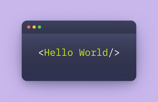Fortnite Returns to iPhone, In-App NFC, Swift 6 Concerns, and More

- #Swift
- #Xcode
• 4 min read
The end of the CocoaPods era, developers complain about Swift 6, Fortnite returns to iPhone, and exciting NFC capabilities for iOS Stay tuned for these and other news from iOS and macOS. I'm Roman Mishchenko, an engineer at CleanMyMac, and we're getting started!
Swift-format in Xcode
Starting with Xcode 16 and higher, swift-format will be included in the tools. You can run swift-format from anywhere in the system using the command swift format. Additionally, it can be launched directly from Xcode with the new shortcut Control+Shift+I.
Problems with Swift 6
Apple introduced several exciting safety features in Swift 6, but it has seen many problems. Developers are pouring complaints in the language repository, including issues with safety diagnostics during compilation. For instance, if class B, which is a MainActor, inherits from class A, the methods of A, overridden by B, should not be isolated.
Similar issues arise when creating an extension for a MainActor class using isolated variables. Thus many developers decided to postpone migration to the new version of Swift.
Epic Games Store reaches iPhone
The Epic Games Store is finally available on iOS in the European Union. Now, iPhone users can play Fortnite again after its removal from the App Store in 2020. The game catalog starts small, featuring all-time favorites like Fortnite and Fall Guys, but Epic Games plans to expand their alternative store, targeting 100 million mobile downloads by year-end.
By the way, MacPaw is also developing a marketplace store for iPhone with our Setapp Mobile Invite-Only Beta.
The end for CocoaPods?
CocoaPods, a longstanding third-party dependency manager for iOS and macOS, is transitioning into a maintenance phase after 13 years of serving the developer community. This shift comes as the tech landscape has evolved significantly, particularly with the introduction of Apple's Swift Package Manager in 2015, which has slowed down the pace and scope of CocoaPods development.
While many developers have continued their support through personal or professional commitments, today, any technical maintenance is driven by external factors.
The dependency manager continues to operate to support existing projects. But going forward, no new features will be released, and maintenance will focus on systemic security updates to support new Xcode versions. The team will continue to manage essential infrastructure on a semi-annual basis.
Plans are underway to potentially make the CocoaPods Specs Repository read-only to streamline security measures and address supply-chain vulnerabilities.
New NFC horizons for iOS apps
Apple is expanding NFC functionalities beyond Apple Pay and Apple Wallet with the latest iOS 18.1 update that allows developers to offer NFC transactions directly within their apps.
This update means apps can now offer a range of NFC-based features, including the ability to make payments in physical stores, function as digital car keys, access public transit systems, and much more. Developers can create applications where users can pay for purchases in a physical location just as they would with Apple Pay, but through the app itself. Apple also plans to support state IDs in the future.
This update is powered by Apple’s new NFC and Secure Element APIs, designed to securely store sensitive information on devices. To access these capabilities, developers must sign a commercial agreement with Apple, obtain the necessary NFC and Secure Element rights, and comply with relevant fees. This ensures that only developers meeting Apple’s strict security and regulatory standards can implement these features.
Initially, this NFC functionality will be available to developers in Australia, Brazil, Canada, Japan, New Zealand, the UK, and the USA, with plans to expand to more regions.
Swift Homomorphic Encryption
Apple has released a new open-source Swift package for homomorphic encryption named swift-homomorphic-encryption. This cryptographic technique enables computations with encrypted data without revealing the underlying information. One use of this technology is the new Live Caller ID Lookup feature in iOS 18, which can identify callers and block spam without exposing phone numbers to the server.
The package includes examples like live-caller-id-lookup-example, which demonstrates the technology in action. Developers can use this tool for data processing and machine learning while maintaining confidentiality.
Apple invites the community to contribute to the project on GitHub, encouraging collaboration to enhance this powerful encryption tool. Subscribe to our blog and stay tuned for the future updates!





